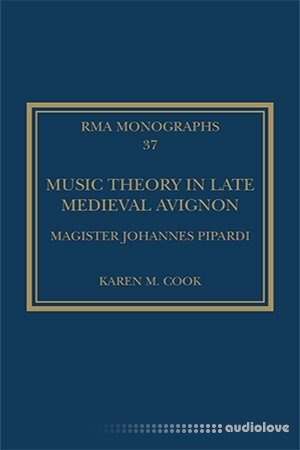Music Theory in Late Medieval Avignon: Magister Johannes Pipardi

The manuscript Seville, Biblioteca Colombina y Capitular 5-2-25, a composite of dozens of theoretical treatises, is one of the primary witnesses to late medieval music theory. Its numerous copies of significant texts have been the focus of substantial scholarly attention to date, but the shorter, unattributed, or fragmentary works have not yet received the same scrutiny. In this monograph, Cook demonstrates that a small group of such works, linked to the otherwise unknown Magister Johannes Pipudi, is in fact much more noteworthy than previous scholarship has observed.
The not one but two copies of De arte cantus are in fact one of the earliest known sources for the Libellus cantus mensurabilis, purportedly by Jean des Murs and the most widely copied music theory treatise of its day, while Regulae contrapunctus, Nota quod novem sunt species contrapunctus, and a concluding set of notes in Catalan are early witnesses to the popular Ars contrapuncti treatises also attributed to des Murs. Disclosing newly discovered biographical information, it is revealed that Pipudi is most likely one Johannes Pipardi, familiar to Cardinal Jean de Blauzac, Vicar-General of Avignon.
Cook provides the first biographical assessment for him and shows that late fourteenth-century Avignon was a plausible chronological and geographical milieu for the Seville treatises, hinting provocatively at a possible route of transmission for the Libellus from Paris to Italy. The monograph concludes with new transcriptions and the first English translations of the treatises.
Home page
DOWNLOAD
